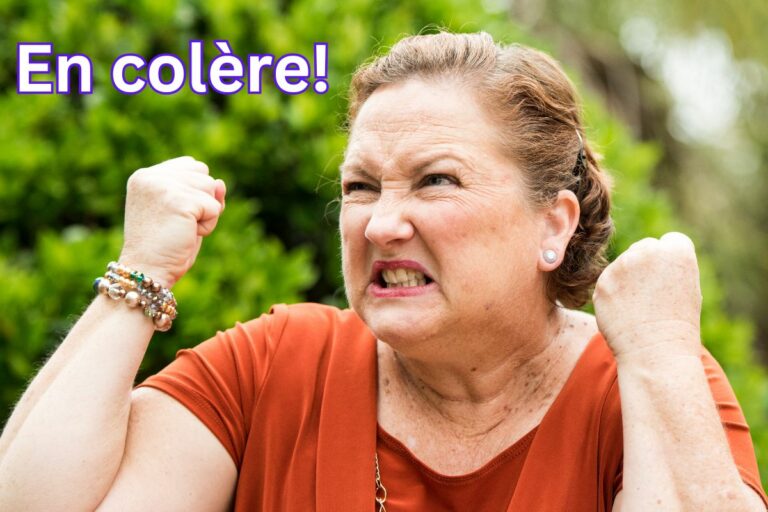Dinner Alone! Husband & Wife (with video)
In this scene, King Arthur's wife asks to have dinner alone with him, which is not common because they usually have others around, often Arthur's parents. She wants some private time with her husband, but she doesn't explain why, making Arthur confused and a bit worried.
Starting at: 1:28:02
- Comment ça se fait qu'on dîne tout seuls, ce soir?
- C'est moi qui ai demandé.
- Pourquoi?
- Comme ça.
- Je comprends pas. Il y a toujours vos parents, d'habitude.
- Justement, on n'est jamais tous les deux.
- Non, on n'est jamais tous les deux puisqu'il y a toujours vos parents.
- Eh ben ce soir, on est tous les deux. Pourquoi, ça vous gêne?
- Non.
- Bon alors voila, moi ça me...
- Si. Non, je suis désolé, je sais pas pourquoi je dis non. Si, ça me gêne.
- Pourquoi?
- Je sais pas... Ça me stresse. Vous êtes là...On dirait que vous allez me demander des trucs!
- Je vais rien vous demander, je veux juste qu'on dîne seuls.
- Mais pourquoi! Merde, vous me faites flipper ce soir, qu'est-ce qui vous arrive?
- Mais enfin, c'est quand même pas croyable de faire des histoires pareilles pour rien du tout!
English version
- How come we're dining alone tonight?
- I asked for it.
- Why?
- Just because.
- I don't understand. Your parents are usually here.
- Exactly, we're never just the two of us.
- No, we're never just the two of us because your parents are always here.
- Well, tonight, it's just the two of us. Does that bother you?
- No.
- Well great then. For me it's ...
- Yes. No, I'm sorry, I don’t know why I said no. Yes, it bothers me.
- Why?
- I don't know... It stresses me out. You're here... It's like you're going to ask me for something!
- I'm not going to ask you for anything, I just want us to have dinner alone.
- But why! Damn, you're freaking me out tonight, what's wrong with you?
- Seriously, it's unbelievable to make such a fuss about nothing at all!
Let's go over the phrases and idioms in the video that are most commonly used in everyday French!
1. Comment ça se fait?
"comment ça se fait" is used to ask how or why something is the way it is. It often expressed surprise or curiosity about a situation. It can be translated as "How come?" or "Why is it that?"
"Comment ça se fait que tu n'étais pas là hier?"
How come you weren't here yesterday?
2. Pourquoi? Comme ça.
The phrase "comme ça" is often used to indicate that there is no particular reason or explanation for something, like saying "just because" in English. It's used when the speaker might not want to elaborate or may not have a specific reason to share.
"Pourquoi as-tu choisi cette couleur ?" "Comme ça."
"Why did you choose this color?" "Just because."
3. Justement!
The word "justement" means "exactly" or "just like that." It's used to agree with something someone has said or to make a point about something being just right for the situation.
"Il nous faut quelqu'un qui parle anglais." "Justement, je connais un américain."
"We need someone who speaks English." "Exactly, I know an American person"
4. Ça vous gêne?
"Ça vous gêne" in French means "does that bother you" or "are you bothered by that?" It's used to ask someone if they are uncomfortable or disturbed by something.
"Je vais mettre de la musique, ça vous gêne?" (ou "ça vous gêne pas?")
"I'm going to play some music, does that bother you?" ("it doesn't bother you, does it?")
5. On dirait que
"On dirait que" translates to "it seems like" or "it looks like". It's used to express an observation or impression about a situation, suggesting that something appears to be a certain way.
"On dirait que tu es fatigué."
"It looks like you're tired."
6. Vous me faites flipper!
"Vous me faites flipper" means "you're scaring me" or "you freak me out."
"Pourquoi tu parles tout bas? Tu me fais flipper!"
"Why are you speaking so quietly? You're freaking me out."
7. Qu'est-ce-qui vous arrive?
"Qu'est-ce qui vous arrive?" means "What's happening to you?" or "What's wrong with you?" It's often used when someone seems to be acting unusual.
"Tu m'as l'air très agitée, qu'est-ce t'arrive?"
"You look very agitated, what's wrong with you?"
8. C'est pas croyable!
"C'est pas croyable" means "it's unbelievable" or "it's incredible".
"Il a gagné à la loterie deux fois! C'est pas croyable!" (or "c'est incroyable!")
"He won the lottery twice! It's unbelievable!"
9. Faire des histoires pareilles
"Faire des histoires pareilles" translates to "make such a fuss" or "create such a drama". You typically use it to criticize someone for overreacting or making a big deal out of something relatively minor.
"Il refuse de sortir parce qu'il pleut un peu. Faire des histoires pareilles pour rien!"
"He refuses to go out because it's raining a little. Make such a fuss over nothing!"






